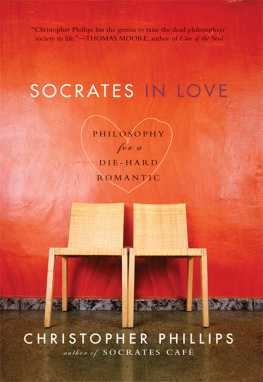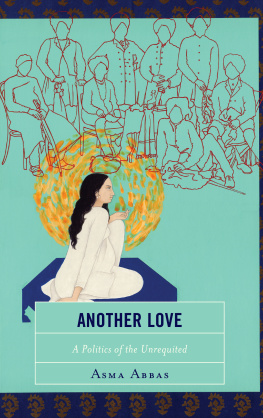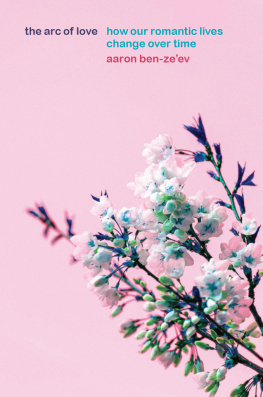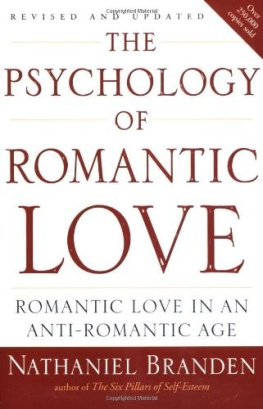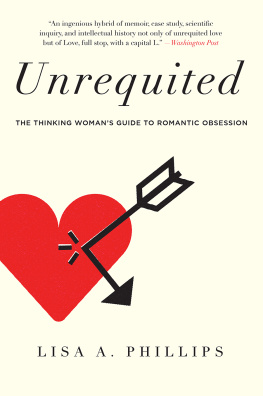Stendahl - On Love
Here you can read online Stendahl - On Love full text of the book (entire story) in english for free. Download pdf and epub, get meaning, cover and reviews about this ebook. year: 2017, publisher: Jovian Press, genre: Science. Description of the work, (preface) as well as reviews are available. Best literature library LitArk.com created for fans of good reading and offers a wide selection of genres:
Romance novel
Science fiction
Adventure
Detective
Science
History
Home and family
Prose
Art
Politics
Computer
Non-fiction
Religion
Business
Children
Humor
Choose a favorite category and find really read worthwhile books. Enjoy immersion in the world of imagination, feel the emotions of the characters or learn something new for yourself, make an fascinating discovery.
On Love: summary, description and annotation
We offer to read an annotation, description, summary or preface (depends on what the author of the book "On Love" wrote himself). If you haven't found the necessary information about the book — write in the comments, we will try to find it.
On Love — read online for free the complete book (whole text) full work
Below is the text of the book, divided by pages. System saving the place of the last page read, allows you to conveniently read the book "On Love" online for free, without having to search again every time where you left off. Put a bookmark, and you can go to the page where you finished reading at any time.
Font size:
Interval:
Bookmark:
ON LOVE
OF LOVE
MY AIM IS TO COMPREHEND that passion, of which every sincere development has a character of beauty.
There are four kinds of love.
1. Passion-lovethat of the Portuguese nun , of Hlose for Abelard, of Captain de Vsel, of Sergeant de Cento.
2. Gallant lovethat which ruled in Paris towards 1760, to be found in the memoirs and novels of the period, in Crbillon, Lauzun, Duclos, Marmontel, Chamfort, Mme. dpinay, etc. etc.
Tis a picture in which everything, to the very shadows, should be rose-colour, in which may enter nothing disagreeable under any pretext whatsoever, at the cost of a lapse of etiquette, of good taste, of refinement, etc. A man of breeding foresees all the ways of acting, that he is likely to adopt or meet with in the different phases of this love. True love is often less refined; for that in which there is no passion and nothing unforeseen, has always a store of ready wit: the latter is a cold and pretty miniature, the former a picture by the Carracci. Passion-love carries us away in defiance of all our interests, gallant love manages always to respect them. True, if we take from this poor love its vanity, there is very little left: once stripped, it is like a tottering convalescent, scarcely able to drag himself along.
3. Physical love. Out huntinga fresh, pretty country girl crosses your path and escapes into the wood. Everyone knows the love founded on this kind of pleasure: and all begin that way at sixteen, however parched and unhappy the character.
4. Vanity-love. The vast majority of men, especially in France, desire and have a fashionable woman, in the same way as a man gets a fine horse, as something which the luxury of a young man demands. Their vanity more or less flattered, more or less piqued, gives birth to transports of feelings. Sometimes there is also physical love, but by no means always: often there is not so much as physical pleasure. A duchess is never more than thirty for a bourgeois, said the Duchesse de Chaulnes, and those admitted to the Court of that just man, king Lewis of Holland, recall with amusement a pretty woman from the Hague, who could not help finding any man charming who was Duke or Prince. But true to the principle of monarchy, as soon as a Prince arrived at Court, the Duke was dismissed: she was, as it were, the decoration of the diplomatic body.
The happiest case of this uninspiring relationship is that in which to physical pleasure is added habit. In that case store of memories makes it resemble love a little; there is the pique of self-esteem and sadness on being left; then, romance forces upon us its ideas and we believe that we are in love and melancholy, for vanity aspires to credit itself with a great passion. This, at least, is certain that, whatever kind of love be the source of pleasure, as soon as the soul is stirred, the pleasure is keen and its memory alluring, and in this passion, contrary to most of the others, the memory of our losses seems always to exceed the bounds of what we can hope for in the future.
Sometimes, in vanity-love habit or despair of finding better produces a kind of friendship, of all kinds the least pleasant: it prides itself on its security, etc.
Physical pleasure, being of our nature, is known to everybody, but it takes no more than a subordinate position in the eyes of tender and passionate souls. If they raise a laugh in the salons, if often they are made unhappy in the intrigues of society, in return the pleasure which they feel must remain always inaccessible to those hearts, whose beat only vanity and gold can quicken.
A few virtuous and sensitive women have scarcely a conception of physical pleasures: they have so rarely risked them, if one may use the expression, and even then the transports of passion-love caused bodily pleasure almost to be forgotten.
There are men victims and instruments of diabolical pride, of a pride in the style of Alfieri. Those people who, perhaps, are cruel because, like Nero, judging all men after the pattern of their own heart, they are always a-tremblesuch people, I say, can attain physical pleasure only in so far as it is accompanied by the greatest possible exercise of pride, in so far, that is to say, as they practise cruelties on the companion of their pleasures. Hence the horrors of Justine . At any rate such men have no sense of security.
To conclude, instead of distinguishing four different forms of love, we can easily admit eight or ten shades of difference. Perhaps mankind has as many ways of feeling as of seeing; but these differences of nomenclature alter in no degree the judgments which follow. Subject to the same laws, all forms of love, which can be seen here below, have their birth, life and death or ascend to immortality.
OF THE BIRTH OF LOVE
This is what takes place in the soul:
1. Admiration.
2. A voice within says: What pleasure to kiss, to be kissed.
3. Hope .
We study her perfections: this is the moment at which a woman should yield to realise the greatest possible physical pleasure. In the case even of the most reserved women, their eyes redden at the moment when hope is conceived: the passion is so strong, the pleasure so keen, that it betrays itself by striking signs.
4. Love is born.
To lovethat is to have pleasure in seeing, touching, feeling, through all the senses and as near as possible, an object to be loved and that loves us.
5. The first crystallisation begins.
The lover delights in decking with a thousand perfections the woman of whose love he is sure: he dwells on all the details of his happiness with a satisfaction that is boundless. He is simply magnifying a superb bounty just fallen to him from heaven,he has no knowledge of it but the assurance of its possession.
Leave the mind of a lover to its natural movements for twenty-four hours, and this is what you will find.
At the salt mines of Salzburg a branch stripped of its leaves by winter is thrown into the abandoned depths of the mine; taken out two or three months later it is covered with brilliant crystals; the smallest twigs, those no stouter than the leg of a sparrow, are arrayed with an infinity of sparkling, dazzling diamonds; it is impossible to recognise the original branch.
I call crystallisation the operation of the mind which, from everything which is presented to it, draws the conclusion that there are new perfections in the object of its love.
A traveller speaks of the freshness of the orange groves at Genoa, on the sea coast, during the scorching days of summer.What pleasure to enjoy that freshness with her!
One of your friends breaks his arm in the hunting-field.How sweet to be nursed by a woman you love! To be always with her, to see every moment her love for you, would make pain almost a blessing: and starting from the broken arm of your friend, you conclude with the absolute conviction of the angelic goodness of your mistress. In a word, it is enough to think of a perfection in order to see it in that which you love.
This phenomenon, which I venture to call crystallisation, is the product of human nature, which commands us to enjoy and sends warm blood rushing to our brain; it springs from the conviction that the pleasures of love increase with the perfections of its object, and from the idea: She is mine. The savage has no time to go beyond the first step. He is delighted, but his mental activity is employed in following the flying deer in the forest, and with the flesh with which he must as soon as possible repair his forces, or fall beneath the axe of his enemy.
At the other pole of civilisation, I have no doubt that a sensitive woman may come to the point of feeling no physical pleasure but with the man she loves. It is the opposite with the savage. But among civilised peoples, woman has leisure at her disposal, while the savage is so pressed with necessary occupations that he is forced to treat his female as a beast of burden. If the females of many animals are more fortunate, it is because the subsistence of the males is more assured.
Font size:
Interval:
Bookmark:
Similar books «On Love»
Look at similar books to On Love. We have selected literature similar in name and meaning in the hope of providing readers with more options to find new, interesting, not yet read works.
Discussion, reviews of the book On Love and just readers' own opinions. Leave your comments, write what you think about the work, its meaning or the main characters. Specify what exactly you liked and what you didn't like, and why you think so.






